 |
Events
- On 9 December, there will be an Online
Welcome Event for new postdocs
at University of Jena. It will provide you with an
overview of various postdoc topics and some useful
information regarding funding, support programmes
and strategies. The event will be held in English.
You can register for the event until 8 December
using this
form.
- On 30 January, the PhD Day and the Postdoc Day
of Jena University will be held together for the
first time. This combination will allow doctoral
candidates and postdocs to get all information on
topics that are relevant for the doctorate and the
postdoc phase. The programme will be published on
this website soon.
- On 10 December, there will be a town
hall meeting for the university public
on the future strategy of the University of Jena.
President Andreas Marx provides an update on the
Executive Board's and the faculties' plans for the
future, explain the objectives of the Excellence
Strategy and outline the next steps and
opportunities for participation. Digital
participation via Zoom is possible. Suggestions and
proposals for improvement can be made via this
padlet until 6 January. Unfortunately, the
language of the event will be German.
- The China Competence Platform is
organising a German lecture series this semester on
the topic of ‘Relations between China and Germany
from the perspective of intercultural
communication’. The next two events on 16 and 23
January are dedicated to the topics of ‘China
competence in the age of de-risking’ and ‘Communication
skills for future managers’. (Picture above:
Adobestock)
- The new BMBF project ‘Gender in Focus’ is
being launched with the aim of systematically and
sustainably integrating aspects of sex and gender
into the research structure of the University of
Jena. The kick-off event and presentation of
the project will take place on 29 January 2025 from
3 - 5.30 pm in the lecture room of the Thuringian
University and State Library. You can register for
the event via this
website. If you have any questions about the
event or the project, please contact the project
coordination office (gib@uni-jena.de).
|
|
|
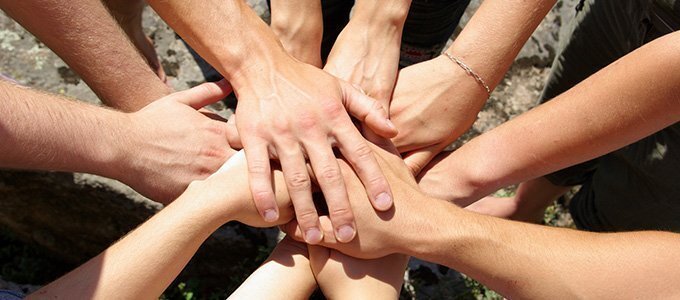 |
Get
involved
- Every month, the Green Office organises a
social
breakfast session with guests to provide
information about its own work and other
sustainability topics. On 16 December, Prof. Uwe
Hoßfeld will provide information about the
activities of the university's ‘Sustainability
Working Group’ during the last four years. The
breakfast session takes place in Zwätzengasse 3
(Room E004).
- On 15 January, Nucleus Jena is organising the ‘Sustainable
Campus Café’ in the Stadtlab. There will
be an open (German) discussion on the topic of
‘sustainability and social justice’ taking campus
life at Jena's universities as an example. The event
aims to provide a meeting and networking space that
allows new project ideas to emerge. These can be
further pursued in small teams.
- From March 24 to 28, the second Data
Literacy Datathon will take place at the
University of Jena. At the event, interdisciplinary
teams will work on real data challenges. Researchers
in Jena are invited to submit their own data and
challenges for the event and work on them together
with the participants. The challenges can range from
conceptual questions on data collection and
organization to more complex data analyses or
possibilities for the visual processing of data.
Application deadline for handing in challenges is 31
January.
|
|
|
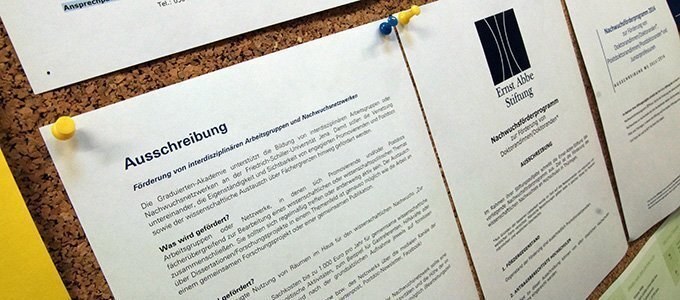 |
|
|
|
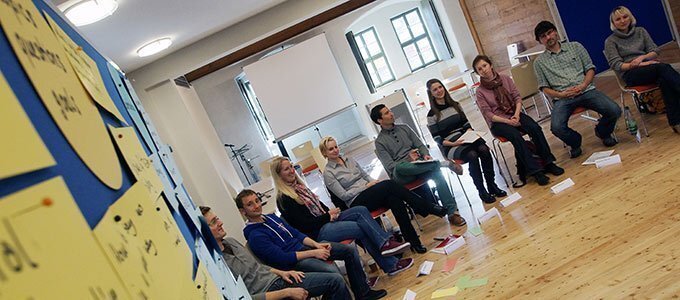 |
Qualification
offers
There are still vacancies in the following online and
on-site workshops:
- Graduate Academy:
- Lehre Lernen:
- Service Centre for Research and Transfer:
- Competence Center Digital Research (zedif):
- Lichtwerkstatt
- What‘s the fuzz about? Introduction into Machine
Learning with Python (23.01.2025, 17:00 - 20:00,
Registration via e-mail)
|
|
|
 |
This
may be of interest to you
- The withdrawal
of the liberal Free Democratic Party (FDP)
from the Ampel coalition led to the resignation
of FDP Education and Research Minister Bettina
Stark-Watzinger. The ministry will now be headed by
the Green Minister of Agriculture, Cem Özdemir,
until new elections are held. It is unclear how the
various reform projects in the field of academia
will be continued:
These include the stalled reform of the Academic
Employment Law or a federal-state programme for
permanent positions besides professorships.
Furthermore, it remains to be seen whether the new
minister will also clarify the so-called funding
affair.
- In Thuringia, the CDU, BSW and SPD published their
coalition agreement at the end of November.
The following goals are set out in the agreement
in the area of academia, among others: The
acquisition of third-party funding is to be
supported via a research excellence programme;
permanent tasks are to be filled ‘more often’ with
permanent employees; ‘a systematic restructuring
programme’ is to be developed and gradually
implemented for all areas of research by 2027. If
the parties' timetable is adhered to, Thuringia
could have a new Minister President before
Christmas, most likely the CDU-politician Mario
Voigt.
- In recent years, there have been many discussions
about how freely debates can take place in
the German academic system: The question has
been whether there is a “cancel culture” which
results in the fact that certain positions can no
longer be expressed in academia. A (German) study
entitled “Academic
Freedom of Speech” (see picture above) and a
(German) study booklet entitled “Contested
Academic Freedom” have now been published to
clear up the jungle of discussion a little.
- Since the introduction of ChatGPT, there has been
a lot of uncertainty about how artificial
intelligence can be used in academic writing –
especially in accordance with the rules of good
scientific practice. The DFG
Committee
for Research Integrity has now
published answers to 25 frequently asked
questions on the use of AI. The answers are
based on the editorial policies of the major
publishers and related organizations.
- University of Liverpool has developed a portal
for the career development of postdocs. The Prosper
portal offers a comprehensive and interactive
overview of the qualifications required for a career
both within and outside academia. It can help you to
reflect on your own academic profile, clarify your
own career aspirations for the future and provide
tools and information on missing skills. The portal
was developed in a four-year cooperation with other
British universities and tested with more than 120
postdocs.
|
|
|
 |
Short
query: Fake papers
In the last survey, we asked how long it usually takes
until postdocs receive feedback from their
supervisors. The answer was that postdocs receive
feedback less often than they would like. The difference
was greatest on the topic of “employment prospects
outside academia”. Only on the topic of habilitation did
one person say that they receive feedback more often
than they would like.
Our new question is about fake papers. An analysis
published in the journal Nature assumes that around two
percent of all scientific papers published in 2022 are
fake papers. What experiences have you had with fake
papers? The survey only takes three minutes. This time
we are raffling off a book voucher worth 10
euros among all participants.
To our query
P.S.: To find out whether a journal is real or fake, you
can use the “Think.Check.Submit”
checklist.
|
|
|
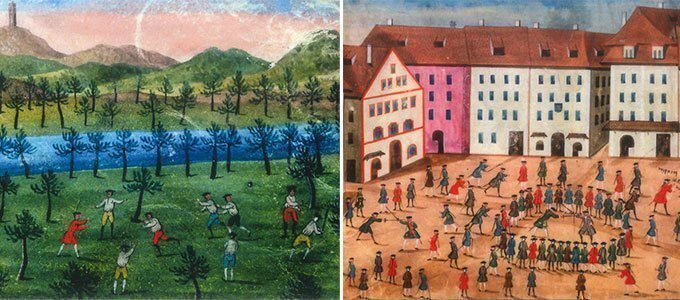 |
News
from University of Jena
- On 28 October,
Prof. Andreas Marx was inaugurated
as President of the University of Jena in a
festive ceremony. Marx also reorganised
the university's management structure when he took
office: The Vice President's Office for Early Career
Researchers, Gender Equality and Diversity was
dissolved and a new Vice President's Office for
University Community and Engagement was created. It
will be headed by Prof Bärbel Kracke. Prof Thomas
Pertsch has been appointed as the new Vice President
for Research and Innovation.
- The numbers of
international researchers in Germany
and Thuringia
are steadily increasing. A new
project at the University of Jena is now
analysing how international researchers can be
encouraged to stay in Thuringia. These efforts
are in response to the enormous shortage of skilled
labour predicted for Thuringia in the coming years.
The Thuringian Ministry of Economics, Science and
Digital Society is funding the project with 200,000
euros. At the end of the two-year project period,
recommendations will be provided for companies and
universities.
- A new book
provides insights into student life in Jena 280
years ago. The book shows
75 colour drawings from the period around 1740 in
Jena. They depict the students of the time smoking
on the banks of the River Saale, having a duel on
the market square or enjoying a dance in the ducal
ballroom (see pictures above). It is also said that
student life at the time often involved the looting
of private gardens. The historical drawings can also
be purchased as postcards in the Jena Bücherstube.
|
|
|
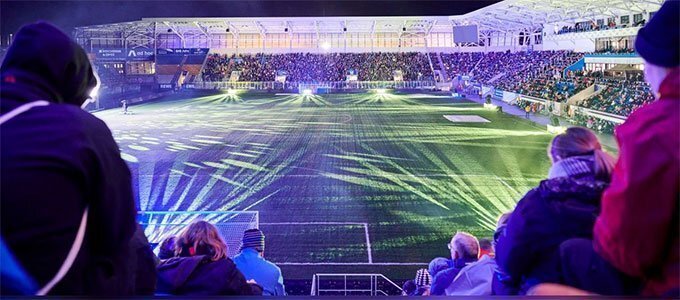 |
Latest
news from Jena city
- On 20 December, a mass Christmas
singing event will take place in the
Jena stadium. This year, 25 Jena choirs with over
700 singers will be taking part. The choirs will
sing German and English Christmas carols together
with up to 12,000 spectators. Tickets for the event
are available in the Pressehaus (Holzmarkt 8).
(Photo: OTZ)
- Two cultural Advent calendars can shorten
the time until Christmas: The Kultürchen
offers a cultural surprise every day, which can
range from theater to music or readings to dance
performances. The doors open at 19.30h at Stadtlab
in Löbderstraße 6. The musical Advent calendar, on
the other hand, always takes place at a different
location. An overview of the venues can be found here.
- At the beginning of November, there was a fire
at Jena's biggest cinema (Cinestar). The fire
broke out in the cinema's technical room on a Sunday
morning. There were no injuries. The cause of the
fire is still unclear.
Due to the damage, films can currently only be shown
in two auditoriums.
- At the end of October a new pigeon house opened
in the centre of Jena. It is home to 140 pairs of
pigeons. By now, it is the third pigeon house in
Jena (in addition to houses in Lobeda West and
East). The idea of a pigeon
house is to reduce the wild nesting of pigeons
in the city and to concentrate them in one place.
Each pigeon house disposes of around one ton of
pigeon droppings per year – droppings that do not
end up in the city. In addition, the pigeon
population can be regulated via the house by
exchanging pigeon eggs for dummies – around 15,000
eggs have already been removed in this way.
|
|